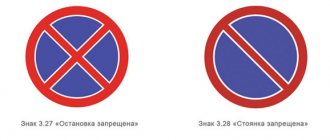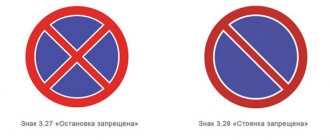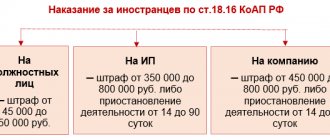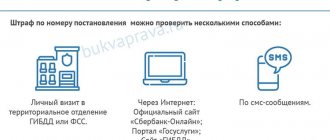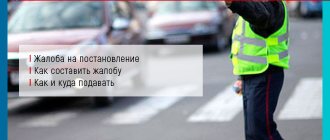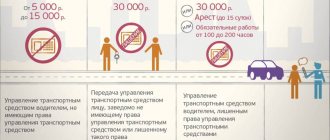A fine is the most common sanction provided for by the Code of Administrative Offenses of the Russian Federation for violating traffic rules. This penalty is applied for most violations, and failure to pay the penalty will result in additional penalties.
The legislator established clear deadlines during which the traffic police fine must be paid to the state treasury. In 2021, this period is sixty days. After its expiration, additional sanctions are applied to the person who has not fulfilled the punishment in accordance with the norms of the Code of Administrative Offenses of the Russian Federation.
Attention! If you have any questions, you can chat for free with a lawyer at the bottom of the screen or call Moscow; Saint Petersburg; Free call for all of Russia.
Deadlines for payment of traffic police fines in 2021
The obligation to pay an administrative fine for violating traffic rules is established in Article 32.2 of the Code of Administrative Offenses of the Russian Federation. This provision, namely paragraph 1, defines a period of 60 days from the date the resolution enters into force. The decision on the traffic police fine comes into force after 10 days from the date of receipt, unless it has been appealed.
Clause 1 in Article 32.2 of the Code of Administrative Offenses of the Russian Federation indicates that the legislator has provided for some exceptions to the deadlines for non-payment of traffic police fines:
- If the punishment is applied to a foreigner simultaneously with deportation, then payment is made no later than the next day after the act comes into force. This is necessary to ensure that the person fulfills the established punishment before he is expelled from the Russian Federation, since it will be problematic to receive money from him after this.
- When it comes to violations under Article 12.9 of the Code of Administrative Offenses of the Russian Federation (exceeding the established speed), paragraphs 6 and 7 of Article 12.16 of the Code of Administrative Offenses of the Russian Federation (Failure to comply with the requirements prescribed by road signs or markings of the roadway), Article 12.21.3 of the Administrative Code of the Russian Federation (Failure to comply with the requirements of the legislation of the Russian Federation) Federation on payment of a fee to compensate for damage caused to public roads of federal significance by vehicles with a permissible maximum weight of over 12 tons), the maximum period is a total of 60 days, but must be paid before the transport leaves the Russian Federation.
The deadline for paying a traffic police fine may be increased if the person has been granted a deferment, which is issued at his request. Such a relaxation can be established on the basis of a court decision, that is, the driver will need to apply and indicate the reasons why this is necessary. In practice, most often, a difficult financial situation or, for example, a long-term illness is used as a justification.
The chances of getting an installment plan for non-payment of a traffic police fine, if the amount of the fine is small, will be small. The court is unlikely to consider the need to shift the deadlines if the amount of the fine is 500 rubles or a little more, especially if the person has official income from which the debt can be collected.
What fines are recorded by cameras?
Drivers have long been accustomed to the fact that cameras can record speeding, crossing a continuous road and driving into oncoming traffic. However, modern video recording tools are already able to recognize other violations on the roads:
- Driving on the side of the road. For such a violation, the driver will receive a fine of 1,500 rubles. In this case, the camera cannot be fooled by the emergency lights being on. Parking cameras have already come to the aid of stationary cameras in this matter, although so far only on the Moscow Ring Road.
- Driving through the parking lot. As with driving on the side of the road, some drivers use the space of parking spaces to avoid traffic jams. In Moscow, along with the fine, violators receive a storyboard from a camera, which proves that the car was moving in the parking lot, and not parked there.
- Driving in the public transport lane. In the regions, the fine for a “bus lane” is 1,500 rubles, in Moscow and St. Petersburg - 3,000 rubles.
- Entering a busy intersection. If there is a waffle marking at such an intersection, most likely it is being filmed by a camera. It will detect a car that entered the waffle at a prohibitory traffic light and stayed there for more than 5 seconds.
- Violations at pedestrian crossings. Cameras on zebra crossings have learned to record and analyze several factors: how much time the pedestrian spent at the crossing, how fast he was moving along the zebra crossing, how fast the car was moving, whether he slowed down in front of the zebra crossing, whether the trajectories of the pedestrian and the car intersected.
- Violations at railway crossings. Here, cameras also record different types of violations: passing the tracks when the barrier is closing or closed, driving through a red light and stopping on the tracks.
- Driving through a red traffic light. This will result in a fine of 1,000 rubles, and for each repeated similar violation - 5,000 rubles. If a car crosses the red stop line but stops, the driver will get off with a fine of 800 rubles. At the same time, as is clear from the previous paragraph, reverse gear will not save you.
- Parking in a prohibited place. Cameras monitor violations of the requirements of the “No Stopping” and “No Parking” signs. Cameras are also installed in front of public transport stops.
- Unpaid parking. In Moscow, this is recorded by stationary “Street Falcons” and parking lots. Fines differ in different regions, but almost everywhere they are impressive. For example, in the capital - 5,000 rubles, in St. Petersburg - 3,000 rubles.
- Unfastened seat belt and talking on the phone while driving. Several traffic cameras in Moscow have learned to notice such violations. Photos of drivers whom the neural network suspects of violating are still checked manually by data center employees, and only then are they sent or not sent to the traffic police.
- Lack of MTPL policy and technical inspection. Cameras can already detect cars whose drivers have not taken out a compulsory motor liability insurance policy. However, inaccuracies in the combined database of insurers and the traffic police are still preventing this from being put into production. The issuance of fines for the absence of a diagnostic card using cameras will presumably begin in 2022. It is planned that the cameras will record the violation once a day until the driver passes the technical inspection.
- Violation of the self-isolation regime. It was planned that by the end of 2020, mobile cameras in Moscow would be trained to identify cars whose owners must comply with quarantine. But since the cameras are still focused on the car data, and not on the driver’s identity, many errors are possible.
Statute of limitations for prosecution
Do not confuse the period established for paying a fine by the traffic police and the statute of limitations during which a person can be brought to administrative responsibility (Article 4.5 of the Code of Administrative Offenses of the Russian Federation).
Thus, a decision to hold the driver accountable is made within two months from the moment the unlawful act was committed, and if we are talking about a violation for which an act can only be issued by a court, then the period is extended by another month.
The only exceptions are a few articles from Chapter 12 of the Administrative Code. According to the specified standards, sanctions are applied over a three-year period:
- Driving a car by a driver while under the influence of alcohol or drugs, transferring control of a car to a person in a state of intoxication, Art. 12.8.
- Violation of traffic rules or rules of operation of a vehicle, resulting in the infliction of slight or moderate harm to the health of the victim, art. 12.24.
- Failure of the person driving the vehicle to comply with the requirement for medical examination. examination Art. 12.26.
- Use of alcohol, drugs or psychotropic drugs after an accident in which the driver was involved, or after the car was stopped at the request of a traffic police inspector, Part 3 of Art. 12.27.
- Violation of traffic rules by a pedestrian, car passenger or other road user (except for the driver of the car), which, through negligence, resulted in the infliction of slight or moderate harm to the health of the victim, Part 2 of Art. 12.30.
Separately, it is worth clarifying the statute of limitations for paying a traffic police fine, that is, the period during which a person may be subject to additional liability for non-payment and may be obligated to carry out the imposed penalty. Article 31.9 of the Code of Administrative Offenses of the Russian Federation determines the limitation period for execution of the decision. Paragraph 1 states that a person may not fulfill his obligation to pay a fine to the traffic police if the resolution has not been put into effect within a two-year period from the date of its entry into force.
If a citizen held accountable evades his duty, then the period is suspended. It turns out that non-compliance should not depend on the person against whom the sanction was applied.
The appointment of a deferment or installment plan also interrupts the course of the established period. This is stated in paragraphs 3 and 4 of Article 31.9.
Where and according to what rules are cameras installed to record violations?
Cameras operating on Russian roads must comply with GOSTs R 57144-2016 and R 57145-2016. They establish requirements for the design features of cameras, their operation and installation locations. According to GOSTs, cameras are installed:
- on sections of roads with limited visibility;
- at railway crossings;
- at intersections of roads with pedestrian and bicycle paths;
- at signalized intersections;
- near educational institutions and crowded places;
- in places where parking or stopping of transport is prohibited;
- on sections of roads with automated weight and size control;
- on roads with a dedicated lane for public transport;
- when changing the speed limit on a section of the road;
- at intersections, roads in the city and outside the city, where more than three accidents with injuries occurred during the year;
- on sections of roads where there are frequent cases of vehicles passing on the side of the road, sidewalk or dividing strip.
A stationary camera can stand alone on an individual stand, or can be mounted on a lamp post, traffic light, road sign or sign, on bridges, overpasses and tunnels. Mobile cameras are installed on roadsides and medians.
If there is a decrease in the number of violations in the place where the camera previously stood, it may be replaced with a dummy one.
Usually, if there is a camera on a section of the road, it is indicated with a sign “Photo and video recording.” But neither the traffic rules nor the GOSTs yet have a mandatory requirement for the installation of such a sign.
The “Photo and video recording” sign refers to signs of additional information, that is, it clarifies the effect of other signs. Accordingly, this sign is not installed separately. According to GOST R 52289-2004, it is placed on traffic lights and road signs 1.1, 1.2, 1.8, 1.22, 3.1-3.7, 3.18.1, 3.18.2, 3.19, 3.20, 3.22, 3.24, 3.27-3.30, 5.14, 5.21, 5.27 and 5.31.
In 2021, the Ministry of Internal Affairs developed changes to the traffic rules, which should introduce a new sign 6.22 “Photo and video recording.” The text of the draft states that the sign will not necessarily be tied to others. It is expected that it will be placed 150–300 meters before the beginning of the control zone and together with signs “Beginning of a populated area.” The document is currently under review. What the new “Photo and Video Recording” sign will look like has also not been determined.
Normative base
The process of bringing to additional liability for non-payment of a traffic fine is regulated on the basis of several norms of the Code of Administrative Offenses of the Russian Federation:
- Article 32.2 of the Code of Administrative Offenses of the Russian Federation establishes the period during which the penalty must be paid;
- the statute of limitations for involvement is established on the basis of Article 4.5 of the Code of Administrative Offenses of the Russian Federation;
- the statute of limitations for payment is established under Article 31.9 of the Code of Administrative Offenses of the Russian Federation;
- liability for failure to pay the traffic police fine within the prescribed period arises on the basis of Article 20.25 of the Code of Administrative Offenses of the Russian Federation.
Certain points are regulated by judicial practice. Thus, Resolution of the Constitutional Court of the Russian Federation dated May 23, 2017 N 14-P determined the legality of Article 31.9 of the Code of Administrative Offenses of the Russian Federation and established a number of features of its practical application.
The decision of courts of general jurisdiction cannot be used as a substantiation of the position of the parties or the court, since the precedent has no legal force in Russia. However, in reality, many lawyers point out such materials to the court, but only for informational purposes.
Where to check fines and how to pay them
In accordance with the requirements of the legislation of the Russian Federation, information about all new fines from the traffic police must be sent to the state information system on state and municipal payments - GIS GMP. To check your fines, use any service connected to the GIS GMP. Let's list the most popular ones.
Public services
Only registered users who have filled out information about their driver’s license and car registration certificate in their personal account can check and pay car fines on State Services. Under the same conditions, you can pay fines in the State Services mobile application.
Bank websites and applications
Every bank today offers the opportunity to pay for any services directly from your phone, including fines from the traffic police and other departments. To check whether you have any car fines, it is usually enough to indicate one thing: driver’s license number, vehicle registration certificate or decree number.
Moscow Government website
On the mos.ru website, residents of all regions, not just Moscow, can check and pay fines from the State Traffic Safety Inspectorate, AMPP and MADI. Using your driver's license number, STS number or resolution number, you can see all your fines: paid and unpaid.
Website onlinegibdd.ru
This service is connected to several sources of information, including the GIS GMP, and collects not only traffic police fines, but also fines from MADI and Moscow parking.
To check for unpaid fines, please provide your driver's license or vehicle registration number. Information about payment is sent to the Federal Treasury at the same time the payment is made, so neither you nor the traffic police will have any questions about the timely repayment of the fine. The money ends up in the traffic police accounts within 1-3 business days, and over the next 2 days the fine is usually removed from the traffic police database.
Check car fines
Responsibility for non-payment of traffic police fines for an individual in 2021
The Code of Administrative Offenses of the Russian Federation provides for additional consequences for non-payment of sanctions for traffic violations. Thus, paragraph 1 of Article 20.25 of the Code of Administrative Offenses of the Russian Federation establishes that in case of failure to pay the traffic police fine within the specified period, the following types of consequences may be applied in 2021:
- the fine is paid in double the amount originally imposed, but the amount should not be less than 1000 rubles;
- arrest for up to 15 days;
- compulsory work for up to 50 hours.
Most often, in practice, an additional fine is applied to the traffic police for failure to pay a fine. However, the final decision is made by the court, based on a number of factors. It turns out that the article provides an alternative sanction and the official uses one of the options.
Traffic police officers often conduct so-called “raids” to identify persons with unpaid fines. Some tell drivers that their car may be impounded because they owe money to the government. This is wrong. The only thing such employees can do is issue a resolution to impose additional liability and deliver it to the court (during non-working hours of the court, the driver can be placed under arrest until the start of the trial).
Reasons for late payment
Late repayment of a fine is usually caused by 3 reasons:
- the driver deliberately evades payment, hoping that the statute of limitations and execution of penalties will expire. This tactic is flawed, since the interaction between the FSSP, the courts and the traffic police has already been established, and debts rarely “burn out”;
- the driver knows about the fine, but cannot pay it due to the large amount or his financial difficulties. Sanctions under administrative articles for violation of traffic rules may include fines of 30,000 rubles, which cannot always be paid quickly and in full. The correct thing to do in this situation would be to apply for an installment plan or deferment;
- the driver does not know about the fine. This happens if a traffic violation is recorded by a security camera, and the decisions are sent by mail. A citizen who does not live at the official registration address may not receive the letter.
Important! Despite the fact that in the latter case the driver’s actions cannot be called intentional and guilty, he will be held accountable for failure to pay an administrative fine on time, on the same basis as a malicious evader.
Penalty for non-payment
The law does not provide for an additional sanction in the form of a fine for failure to comply with an administrative penalty in 2021. Additional costs can only be associated with forced collection after two months from the date of the decision, when the case is implemented by the bailiff service.
Thus, in Article 112 of the Federal Law “On Enforcement Proceedings”, paragraph 3 states that the amount of additional forced collection will be 7 percent of the amount of the traffic police fine, but not less than 1,000 rubles for individuals.
Remember
- A fine is considered overdue if it has not been paid within 70 days from the date of violation.
- The consequences of an overdue traffic fine are the transfer of the case to the bailiffs and forced collection of money.
- To pay an overdue fine, check on the FSSP website to see if enforcement proceedings have been initiated. If not, pay the fine as soon as possible.
- If the bailiff has started the proceedings, look at the date - after 5 days from the start of the proceedings the bailiff may assign an additional fee. Then you will need to pay the amount of the fine plus a fee to the FSSP.
- The traffic police fine may not be paid if the inspector incorrectly completed the report or the driver has evidence of innocence. Send a complaint to the traffic police along with evidence - indications of errors or a recording from the registrar.
- You can check fines on the State Services website after registration or immediately on the “State Traffic Police Fines”.
All articles by the author: Evgeniy Lesnov
Court for non-payment of traffic fine
Only a court can impose traffic police fines for non-payment of fines. Even if this circumstance is clarified by the employee during a stop on the road and checking documents, the traffic police inspector will issue a decision and refer the case to the court.
The person will be summoned to the meeting by summons. All documents relating to additional liability will be sent to him. Most often, the package of papers contains only a resolution and a summons, since additional information will be clarified during the court hearing.
The court will have to examine all the circumstances and decide what kind of responsibility to hold the citizen to account for: a fine, arrest or work.
An additional sanction does not exempt you from the initial one; for example, if a citizen was involved in arrest, he will still have to pay the amount of the traffic police fine established initially.
A citizen has the opportunity to prove his innocence. For example, he has receipts confirming the fact of repayment of existing debt on fines, in which case it is necessary to present them to the meeting. The court will certainly refuse to satisfy the demands.
If the debt is paid after the ruling is made, but before the trial, the court will still not apply additional penalties and will terminate the proceedings.
How to appeal a fine
If you are sure that you did not violate the law and the decision was sent to you erroneously, appeal it. A complaint against a decision must be sent to the district (city) court or the official who issued the decision on the case. You can appeal the decision no later than 10 days from the date of receipt of its copy. A sample complaint against a traffic police resolution looks like this:
It is not yet possible to challenge a fine via the Internet in all regions and not for every violation.
Fines from the Moscow Parking Space Administrator (AMPP) can be appealed on the Autocode portal, on the mos.ru website and through a special form on the Moscow Transport website. Fines from MADI are disputed here and through the electronic reception of the Moscow Government.
Russian Post has. It allows you to send a registered letter, including an application to appeal a fine, to the desired department directly from the application or from the Russian Post website. But there is a caveat: if the department is not able to receive letters electronically, they will be printed and delivered in the usual way. So it’s unlikely to work out faster.
Drivers may soon have the opportunity to appeal a fine through State Services. A bill on relevant changes to the Code of Administrative Offenses of the Russian Federation is already under consideration in the Federation Council.
But for now, most Russian drivers are challenging fines the old-fashioned way: by personally submitting a written statement to the agency that issued the fine. For more information about what a statement of complaint should contain, where to send it, what arguments to use, read the article “How to appeal fines from the State Traffic Safety Inspectorate, MADI, AMPP, sample complaints, analysis of situations.”
What to do if you are summoned to court for failure to pay a traffic police fine in 2021?
In a situation where you have received notification of a court hearing, you need to act as quickly and efficiently as possible. The following actions are recommended in 2021:
- If possible, pay the outstanding fine. If at the meeting you provide evidence of the fulfillment of your duty, even if it was fulfilled after the traffic police applied to the court, the application of an additional measure of liability will be refused. Receipts can be used as proof of debt payment. If the amount was transferred online, you can print out electronic versions of them.
- Prepare an objection. In it, you can indicate your disagreement with the application of additional responsibility, for example, if there was a valid deadline for missing payment.
- Prepare documents supporting the position, such as sick leave or travel documents. Other papers can be used as justification if they confirm the person’s position.
The driver can also request the application of a certain type of consequences based on Article 20.25 of the Code of Administrative Offenses of the Russian Federation. For example, if a person is in a difficult financial situation and provides papers confirming this fact, the court may choose a non-financial penalty, for example, compulsory work that the citizen can perform.
The situation may be the opposite when a fine is the preferred option. For example, a citizen being held accountable is sick and is unable to work or stay in a temporary detention center. In this case, he has the right to ask the court to impose an additional financial sanction.
Application of arrest
Arrest is not always used in practice, but recently such cases have become more frequent. In fact, the choice of administrative punishment for failure to pay a fine lies with the court, which makes the final decision.
However, in some cases, arrest cannot be applied at all. Based on the note (part 3) of Article 20.25 of the Code of Administrative Offenses of the Russian Federation, such punishment is not used if the sanction was issued on the basis of automatic fixation means.
Most often, arrest is used if a person is repeatedly brought to administrative responsibility, shows disrespect for the court and the judicial system as a whole, and indicates intentions not to fulfill his obligation in the future.
Some citizens themselves ask that the court apply arrest rather than an additional fine. The reason for such a petition is the lack of financial ability to repay the debt. However, the final decision still lies with the court, only it has the right to choose a specific punishment.
What is the penalty for failure to pay a traffic fine to a legal entity?
Not only citizens can be held administratively liable. Thus, legal entities may be fined for violating certain provisions of Chapter 12 of the Code of Administrative Offenses of the Russian Federation; accordingly, if the penalty is not fulfilled, additional sanctions will be applied.
There is no separate article providing for the consequences of organizations for failure to fulfill the obligation to pay. For failure to pay a traffic fine in 2021, the same norm applies to legal entities as for individuals. However, a legal entity cannot be placed under arrest and sent to compulsory labor, so a double amount is collected.
It is worth remembering that traffic police fines for legal entities are significantly higher than for citizens. Therefore, organizations need to pay extra attention to the issue of paying off existing debt.
How to control fines for legal entities
Legal entities that own a fleet of vehicles often encounter difficulties in tracking and paying fines. It happens that decisions do not arrive on time or are lost altogether. Often it is not possible to pay a fine at a discount or appeal it on time. And the more cars in the fleet, the more problems.
It is better not to wait for the decision to arrive by mail, but to periodically check possible fines online yourself. Some popular services like the traffic police website and State Services have drawbacks. For example, State Services do not show photographs of violations, and on GIBDD.rf you cannot find fines according to the organization’s TIN and fines from MADI and AMPP. Both services do not have tools for paying fines by non-cash method; it is impossible to control the repayment of fines and track the history of fines.
In order not to waste a lot of time tracking and paying the organization’s car fines, many large corporate fleets, carriers and leasing companies use the Online State Traffic Safety Inspectorate super service. Users of the super service only need to fill out information about all the cars in the fleet once, so that in the future they do not have to manually check fines for each of them, pay for them online in a convenient way and control their repayment. The service can be integrated with the organization’s accounting system, and you can also set up automatic notifications of new fines via SMS or email.
Read more about the features of different services for legal entities for monitoring car fines in our article “Staff traffic police fines for legal entities - how to start monitoring all decisions.”
Checking fines for legal entities. persons
Do you want to monitor fines, receive a daily report on new fines found and pay them?
Try for free
Don't miss new useful publications
We will tell you about the intricacies of the legislation, help you understand it and tell you what to do in controversial situations.
What is the penalty for failure to pay a traffic police fine of 30 thousand rubles?
The legislator does not make exceptions regarding which sanctions can be paid at double the rate and which cannot. The person on whom the thirty thousandth sanction was imposed is held accountable on the same basis, using Article 20.25 of the Code of Administrative Offenses of the Russian Federation.
After the judicial act is issued, the citizen will have to pay twice as much. In addition, a person may be subject to arrest for up to 15 days or compulsory work for up to 50 hours.
It is noteworthy that in practice, many citizens ask the court to use alternative punishments for failure to pay a fine, that is, arrest or work, since collecting double the amount may not be feasible due to the financial situation of the person. The final decision is still made by the court.
What to do if your card is blocked for failure to pay a traffic fine?
Bank cards and accounts may be blocked as part of enforcement proceedings. This is done in the case when the debtor does not fulfill his obligation voluntarily and the bailiff service is involved in the case.
In this case, it will not be possible to unblock the card before the obligation is fulfilled, since the arrest is imposed for the purpose of writing off the funds that may come to the card. The exception is if the account is special. Bailiffs often seize cards that are used to receive children's money or other social benefits. In this case, you need to contact the FSSP and write a statement.
If your account is blocked for non-payment of a traffic fine, it is recommended to immediately contact the bailiff service and pay off the existing debt. After this, the account will be unblocked. If this does not happen, you should write an application for such an action, and if there is no response to it, file a complaint with a higher authority or in court.
Why is a paid fine handed over to the bailiffs for collection and what to do about it?
It happens that the paid fine is handed over to the bailiffs for collection. This happens if:
The fine was paid late, the payment deadlines had already expired.
For example, deadlines often expire when paying on the last day because the bank does not have time to process the payment. The traffic police marks the fine as unpaid and transfers it to the bailiffs for collection.
In this case, it is enough to provide the bailiffs with payment documents - a receipt, payment order or bank statement. Enforcement proceedings end. But if the bailiffs have already managed to collect the debt for the paid fine, you need to contact the traffic police for a refund. Read how to return overpaid funds.
The bank transferred the money, but did not enter payment information into the government database.
All data on payments for fines is collected in the State Payment System - GIS GMP. Inspectors and bailiffs check the payment of fines using GIS GMP data. Banks are required to immediately transmit information about any government payment there.
Sometimes, due to a technical glitch, the bank does not transmit information or transmits it too late. Then the traffic police considers the fine unpaid. In this case, you need to contact the bank with a complaint and demand that the error be corrected, and provide payment documents to the bailiffs to complete the enforcement proceedings.
There was an error in the details during payment.
This is the most common reason for transferring a paid fine to the bailiffs. In this case, you will have to pay the debt for enforcement proceedings, and then return the money for the erroneous payment. To get a refund, you need to contact the department that received the money for the fine - for example, the traffic police. You can also try to adjust the payment through the bank if the money has not yet reached the recipient.
Errors usually occur due to inattention. Sometimes the accountant does not know which fields need to be filled in in the payment order. For example, when paying fines, you must fill in the “Code” field, otherwise the fine will not be paid in the GIS GMP.
To avoid mistakes, it is better to use special services for payment. For example, Online Traffic Police automatically generates completed payment orders for each fine. Fines can also be uploaded to the client bank or paid by card.
Nuances
Failure to pay a traffic fine will result in additional liability. It is worth paying attention to some practical features that arise in such situations:
- In addition to an additional fine, an enforcement fee may be collected for each enforcement proceeding. The minimum amount is 1000 rubles. If the initial penalty was 500 rubles, such a punishment is quite significant.
- Payment of the enforcement fee can be avoided by paying off the debt before the initiation of proceedings.
- A citizen has the right to ask the court to apply an alternative punishment or, conversely, to use a monetary penalty instead of arrest or labor. But the final decision is made only by the court, guided by available factors and general principles of legal proceedings.
- In practice, fines of double the amount are most often applied.
- A person cannot be held liable if the statute of limitations has expired.
It is not recommended to take the traffic police fine to the point of applying additional liability, since the matter may not be limited to double penalties. The person is charged an enforcement fee, and other liability measures are applied. If it is impossible to pay immediately, you can ask the court to defer execution or pay by installments.
Is deferment or installment plan possible?
The Code of Administrative Offenses allows for the possibility of deferring or spreading the fine (Article 31.5):
- if postponed, the deadline is postponed; the violator gets more time to repay the debt in parts or in a single payment. The traffic police fine can be deferred for 1 month;
- When paying in installments, the debt is split into parts, each being given a certain time to pay. Payment of a fine for an administrative offense in the field of traffic rules can be extended for 3 months.
In practice, they often combine installments and deferment of the debt if it is really difficult for the driver to pay it on time in full.
In this case, the reason for the difficulties must be compelling, justified, documented:
- illness, injury and disability;
- assignment of a disability group;
- the arrival of a child or other dependent;
- reduction due to liquidation of the organization, etc.
Just “no money” is not a valid reason. The state, if necessary, will find them by selling the property of the offender.
Expert opinion
Artemyev Dmitry
Experience as a forensic expert in the field of automotive technical examination for more than 2 years, more than 3 years of work in the field of insurance disputes, appealing guilt in road accidents.
Ask a Question
The petition is submitted to the department that issued the decision: the court or the traffic police. You can install or defer a debt in respect of which enforcement proceedings are being carried out. To do this, they first contact the bailiff to calculate the entire debt, then go to court.
Important! You must apply for a deferment or installment plan before the payment deadline.
